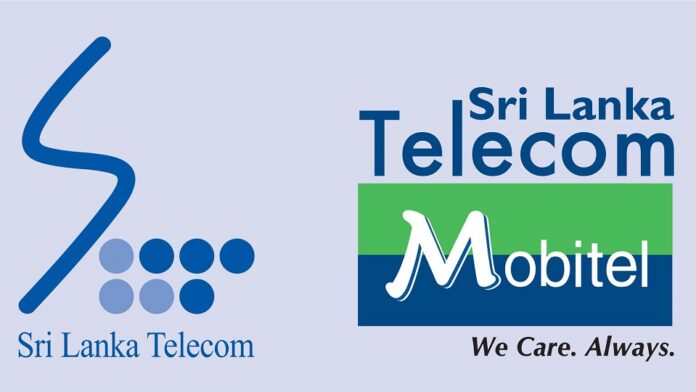By: Staff Writer
Colombo (LNW): The government will firmly go ahead with Sri Lanka Telecom Group (SLT Group) restructuring process owing to its inefficiency, unproductivity and its less contribution for economic growth with massive overheads, although it has been considered as a profit making institution.
The aim of the government is to restructure it making the National Telecom Provider as an efficient, transparent and accountable business enterprise capable of providing effective service delivery, finance ministry sources disclosed.
This Telecom giant with 4,697 employees is currently operating with 21 trade unions and it has become a burden to the state with frequent workers protests and strikes making it difficult to the management navigate the public enterprise in a real profitable path.
It has failed to achieve the establishment objectives of ensuring the maximum return on public investment while making sure the optimum utilization of institutional resources as well as the ability to operate with commercially viable and independent from the government budget.
Sri Lanka Telecom’s profitability ratio is very much lover than its competitors operating in the country.
The average profitability ratio of SLT during past five years was around 6.52 percent where as the Dialog Axiata PLC,s Sri Lanka’s Leading Quad-Play Connectivity Provider maintains profitability ratio of 15.2 percent.
Profitability ratios are a class of financial metrics that are used to assess a business’s ability to generate earnings relative to its revenue, operating costs, balance sheet assets, or shareholders’ equity over time, using data from a specific point in time.
Restructuring of Sri Lanka Telecom (SLT) will be done by Public Enterprise Holding Company Limited without any political interference. The company was set up following the model of Singapore and Malaysia to run state institutions, State Minister Ranjith Siyambalapitiya revealed.
“This institution will decide on restructuring patterns of state owned enterprises and would consider total privatization, building up of private public partnership and deciding upon what strategically important institutions should vested with the state sector,” the State Minister said.
“The total losses incurred by more than 400 state run institutions have been Rs. 322 billion and it is not possible to put the burden on running these institutions on the people,” he added.
Referring to SLT in particular, he said the number of landlines which the country had before privatization was 270,000 but the number of landlines have increased up to 10.2 million after the restructuring.
“The Government owns only a 49 percent stake of SLT at the moment and why make a fuss about it,” he questioned.
The Cabinet of Ministers’ approval had also been granted recently for the divestiture of several SOEs including SriLankan Airlines Ltd., Sri Lankan Catering Ltd., Sri Lanka Telecom PLC, Sri Lanka Insurance Corporation Ltd., Canwill Holdings Private Ltd. (Grand Hyatt Colombo), Hotel Developers Lanka Ltd. (Hilton Hotel Colombo), Litro Gas Lanka Ltd. including Litro Gas Terminals (Pvt.) Ltd. and the Lanka Hospital Corporation PLC.

